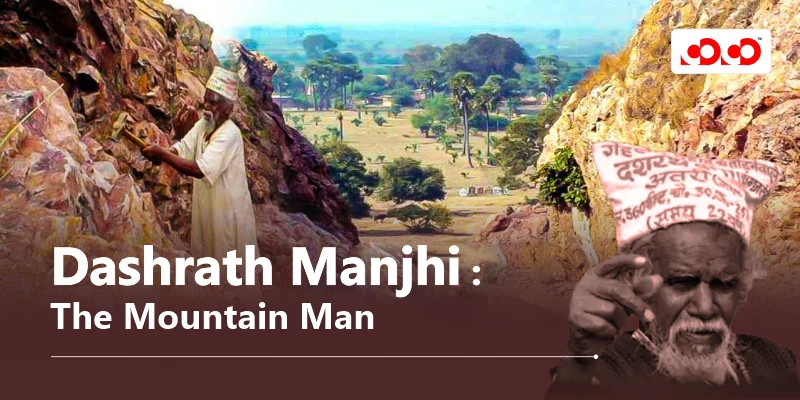Dashrath Manjhi, belonged to the lowest caste in India and was born into a Musahar family on January 14, 1934. He was from a remote village called Gehlaur of Gaya, a region of Bihar, India, imprisoned in great misery. He ran away from home when he was a small boy and spent seven years labouring in the coal mines of Dhanbad, Jharkhand. Manjhi returned to Gehlaur and began working on a farm. Falguni Devi, a local girl, was the subject of his intense love affair. In 1956, Manjhi was married off in his childhood to Falguni Devi.
Falguni Devi, Manjhi's wife, passed tragically in 1959 after collapsing off a mountain and receiving serious injuries; the nearest town with a hospital was 90 kilometres [56 miles] away. She allegedly suffered an injury while navigating a winding, rocky mountain to deliver food or water to Manjhi, who was supposed to work south of the ridge outside the village. Manjhi decided to carve a road across the ridge to improve access to his settlement after this event. Manjhi decided to cut a passage through the ridge because he felt compelled to contribute to society and wanted his tribe to have easier access to medical care.
He used only a hammer and chisel to create a route through a range of hills that was 110 metres long, 7.7 metres deep in some parts, and 9.1 metres wide. People labelled me a lunatic when I first started hammering the hill, but that only strengthened my drive, he claimed.
After 22 years of work, Dashrath shortened travel between the Atri and Wazirganj blocks of Gaya district from 55 km to 15 km. The residents of Gehlaur hamlet have a better quality of life as a result of Manjhi's work, despite being made fun of for it. Manjhi subsequently recalled, "Although most of the villagers teased me at first, there were quite a number who showed me support afterwards by giving me food and aiding me in purchasing my tools.
"Official highways over the trail he dug between his hamlet in Atri and Wazirganj were only constructed after his death in 2007".
On July 23, 2007, Manjhi received a gallbladder cancer diagnosis and was admitted to the All India Institutes of Medical Sciences [AIIMS] in New Delhi. There, on August 17, 2007, he perished. The Bihar government gave him a state funeral.
Manjhi gained the moniker "Mountain Man" as a result of his accomplishment. His nomination for the Padma Shree award was also made by the Bihar government for social services in 2006.
By: Ajit Kumar
Useful Links:










Comments
Post a Comment